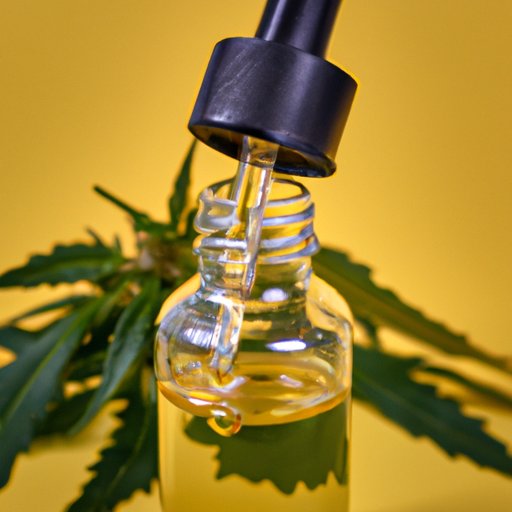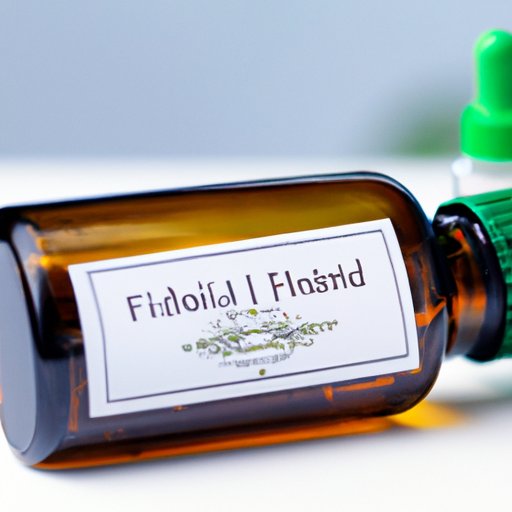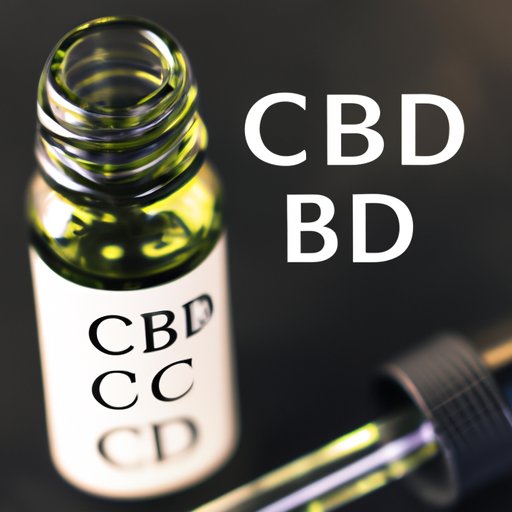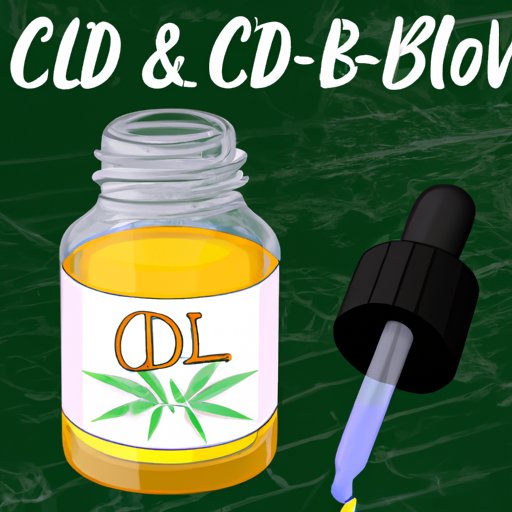I. Introduction
CBD oil has become a popular natural remedy for various conditions, leading to a growing trend of DIY CBD oil making. However, the legality of homemade CBD oil is a complex issue that needs to be explored. In this article, we’ll provide a comprehensive overview of the legal framework surrounding homemade CBD oil and the potential risks involved.
II. The Legal Framework of Homemade CBD Oil Explained
CBD or cannabidiol is a compound derived from the hemp plant that has gained popularity as a potential treatment for various conditions, including anxiety, chronic pain, and seizures. In the United States, CBD regulation is a complex mix of federal law and state laws.
Under federal law, hemp-derived CBD products containing less than 0.3% THC (tetrahydrocannabinol) are legal. However, marijuana-derived CBD is still illegal under federal law. State laws on CBD regulation vary widely, with some states allowing all types of CBD products, while others only allowing certain types.
The FDA also plays a role in regulating CBD products. While the agency has approved a CBD-based drug to treat certain conditions, it has not approved CBD for other uses. The FDA has also issued warning letters to companies selling CBD products with unsubstantiated claims about their efficacy.

III. DIY CBD Oil: Understanding the Legal Risks Involved
While it may seem like a cost-effective and convenient option, making your own CBD oil can pose legal risks. One major concern is the potential for contamination or inaccurate labeling, which could lead to adverse health effects.
Additionally, if your homemade CBD oil contains more than 0.3% THC, it could be considered marijuana and therefore illegal under federal law. This could result in potential legal consequences if caught.
Because of these risks, it’s important to comply with relevant laws and regulations when making homemade CBD oil. This includes using only the appropriate parts of the hemp plant and testing the oil for accurate potency and purity.

IV. Federal vs. State Laws on Homemade CBD Oil: What You Need to Know
Another complexity of the legal framework of homemade CBD oil is the differences and inconsistencies between federal and state laws. Some states have legalized all forms of CBD, while others have only legalized certain types. This can create confusion for individuals who want to make homemade CBD oil.
It’s important to determine the laws in your state and whether they comply with federal law before attempting to make your own CBD oil. Additionally, it’s important to follow the best practices for making homemade CBD oil that comply with both state and federal laws, such as only using hemp-derived CBD and ensuring THC levels remain below 0.3%.
V. Can You Legally Make Your Own CBD Oil? Here’s the Answer
The legality of making your own CBD oil depends on state and federal laws. If you live in a state where all CBD products are legal, including homemade CBD oil, it is legal to make your own CBD oil as long as it complies with federal law. However, if you live in a state with specific restrictions or prohibitions on CBD products, making your own CBD oil could be illegal.
Regardless of the legality, it’s important to read and understand the laws in your state or at the federal level before attempting to make homemade CBD oil. This can help you avoid any potential legal risks and ensure that you are only using safe and legal products.

VI. Navigating the Complexities of CBD Oil Legalization: A Guide to DIY CBD Oil
Navigating the complexities of CBD oil legalization can be daunting. One strategy to legalize homemade CBD oil is to work with state legislators and advocacy groups to change the laws in your state to allow legal production and sale of CBD products.
Alternatively, you can work with federal legislators to change the laws at the federal level to legalize all forms of CBD. This can require significant time and effort, but it can be a more effective way to ensure that the legal framework surrounding CBD is clear and consistent for all stakeholders.
Regardless of the strategy you choose, it’s important to understand the legal process and secure any necessary approvals before attempting to make your own CBD oil.
VII. Homemade CBD Oil: Legal or Illegal?
Based on the current state and federal laws, homemade CBD oil can be legal or illegal depending on where you live and how you make it. It’s important to read and understand the laws in your state or at the federal level before attempting to make your own CBD oil.
If you choose to make homemade CBD oil, it’s crucial to comply with relevant regulations and best practices to avoid legal risks. This includes using only hemp-derived CBD, testing the oil for potency and purity, and ensuring THC levels remain below 0.3%.
VIII. Conclusion
In conclusion, making your own CBD oil can be a cost-effective and convenient option, but it does come with potential legal risks. Understanding the legal framework and complying with relevant laws and regulations can help you make safe and legal homemade CBD oil.
If you’re considering making your own CBD oil, it’s crucial to read and understand the laws in your state or at the federal level to avoid any legal complications. By following best practices and researching the legal framework, you can ensure that your homemade CBD oil is both legal and safe for use.
Despite the complexities of the legal framework surrounding homemade CBD oil, the growing demand for natural remedies continues to drive the industry forward. Whether you choose to make your own CBD oil or purchase from a legal and reliable source, it’s important to stay informed on the latest developments in CBD regulation.
